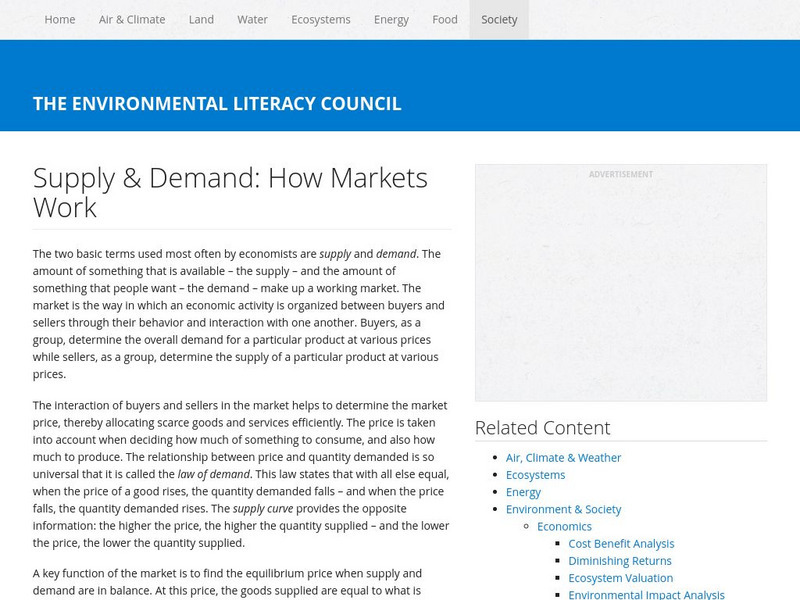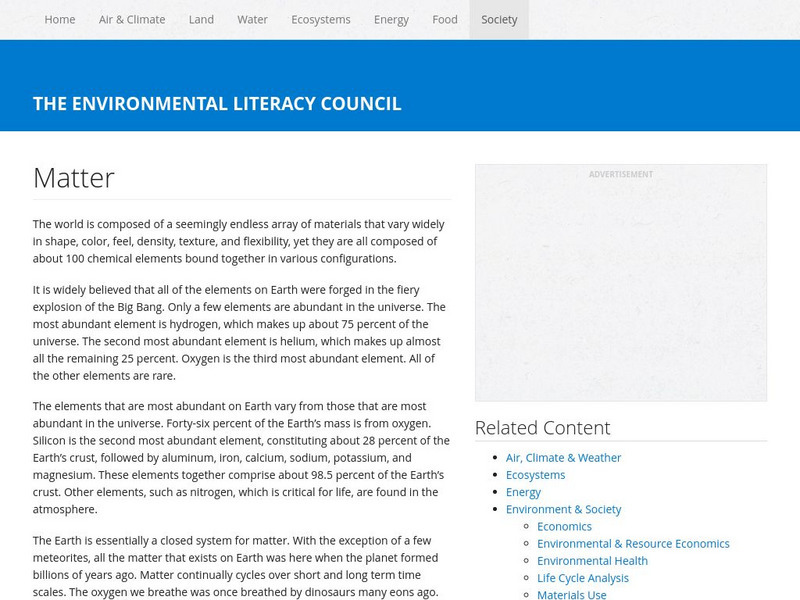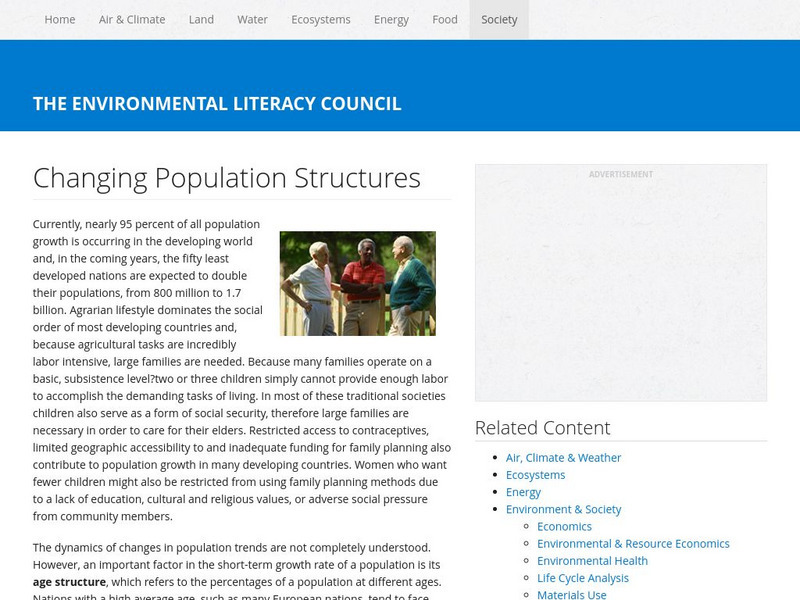Hi, what do you want to do?
The Environmental Literacy Council
Environmental Literacy Council: Petroleum
Petroleum and petroleum-based products have played an impressive role as energy for the 20th century. Learn about its uses, benefits, increased consumption, effects on our environment, and the many new replacement technologies.
The Environmental Literacy Council
Environmental Literacy Council: Teacher Resources
Environmental Literacy Council offers teacher resources for a variety discrete subjects and grade levels in this website. Teachers looking for classroom activities, labs, and quizzes about environmental science that are reviewed by...
The Environmental Literacy Council
Environmental Literacy Council: For Students
Environmental Literacy Council wants to build a fundamental understanding of the systems of the world, both living and non-living, along with the analytical skills needed to weigh scientific evidence and policy choices in young people....
The Environmental Literacy Council
Environmental Literacy Council: Supply and Demand: How Markets Work
An article on supply and demand and how markets work. Related links for teachers.
The Environmental Literacy Council
Environmental Literacy Council: Matter
Learn about the considerable variety of materials on Earth, and the basic properties which set them apart. Read how all matter on Earth comes into play when it comes to environmental issues.
The Environmental Literacy Council
Environmental Literacy Council: Temperature
The difference between heat and temperature is explained, followed by a discussion of temperature and its relation to global climate change. Gallileo Galilee, Daniel Gabriel Fahrenheit, Anders Celsius, and Carl Linnaeus are mentioned in...
The Environmental Literacy Council
The Environmental Literacy Council: Changing Population Structures
An article about changing population structures. Links to other resources, data and maps, and classroom lesson plans on population aging.
The Environmental Literacy Council
Environmental Literacy Council: Ecosystems
Article explaining ecosystems and why we use them to organize our ideas about the natural world. Links to additional resources, maps, and activities.












